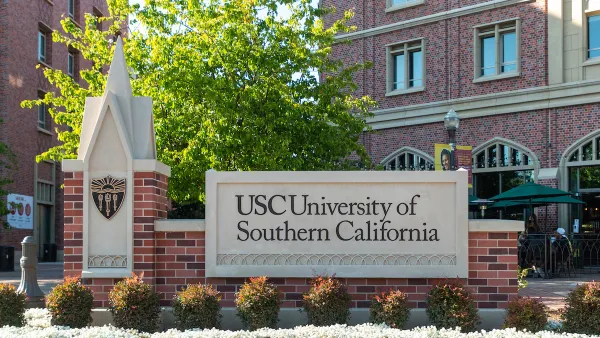While the east coast suffers through a brutal early summer heat wave, researchers in Los Angeles have announced the findings of the most advanced regional climate modeling ever conducted, which shows that So Cal will feel the heat soon enough.
Released this week, "Mid-Century Warming in the Los Angeles Region", which researchers at UCLA are calling "the most sophisticated regional climate study ever developed," shows that "climate change will cause temperatures in the Los Angeles region to rise
by an average of 4 to 5 degrees Fahrenheit by the middle of this
century, tripling the number of extremely hot days in the downtown area
and quadrupling the number in the valleys and at high elevations."
"That's the bad news," writes Damien Newton. "The good news, even by acting locally there is
something that L.A. can do....Today, the City released Adapt LA [PDF],
a fact sheet outlining what principles the city must embrace to both
prepare for higher temperatures and work to keep them as low as
possible, and C-Change LA , its new
climate change website. AdaptLA has four major components: 1)
science-based evaluation of the impacts of climate change; 2) assessment
of the vulnerability of and risks to City infrastructure and assets; 3)
regional collaboration; and 4) public engagement."
The C-Change website outlines the types of things homes and businesses can do to assist in minimizing and responding to climate change. Speaking this week, Mayor Antonio Villaraigosa
outlined some of the ways to keep the city cool: "That could mean replacing
incentives with building codes requiring 'green' and 'cool' roofs, cool
pavements, tree canopies and parks."
"'Mid-Century Warming in the Los Angeles Region' is the first of five
planned studies [UCLA climate expert Alex] Hall will conduct for the city and the LARC about how
climate change will affect the Southland. Hall's team plans to develop
similarly comprehensive models for local rainfall, Santa Ana wind
patterns, coastal fog (including June gloom), and soil moisture, run-off
and evaporation."
FULL STORY: The Keys to Beating, or at Least Fighting, Climate Change: Bikes, Transit, Parks, Trees

Analysis: Cybertruck Fatality Rate Far Exceeds That of Ford Pinto
The Tesla Cybertruck was recalled seven times last year.

National Parks Layoffs Will Cause Communities to Lose Billions
Thousands of essential park workers were laid off this week, just before the busy spring break season.

Retro-silient?: America’s First “Eco-burb,” The Woodlands Turns 50
A master-planned community north of Houston offers lessons on green infrastructure and resilient design, but falls short of its founder’s lofty affordability and walkability goals.

Test News Post 1
This is a summary

Analysis: Cybertruck Fatality Rate Far Exceeds That of Ford Pinto
The Tesla Cybertruck was recalled seven times last year.

Test News Headline 46
Test for the image on the front page.
Urban Design for Planners 1: Software Tools
This six-course series explores essential urban design concepts using open source software and equips planners with the tools they need to participate fully in the urban design process.
Planning for Universal Design
Learn the tools for implementing Universal Design in planning regulations.
EMC Planning Group, Inc.
Planetizen
Planetizen
Mpact (formerly Rail~Volution)
Great Falls Development Authority, Inc.
HUDs Office of Policy Development and Research
NYU Wagner Graduate School of Public Service




























